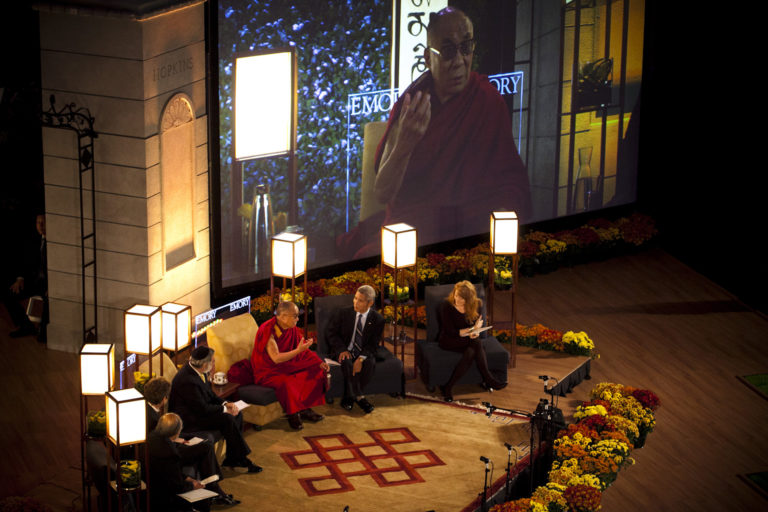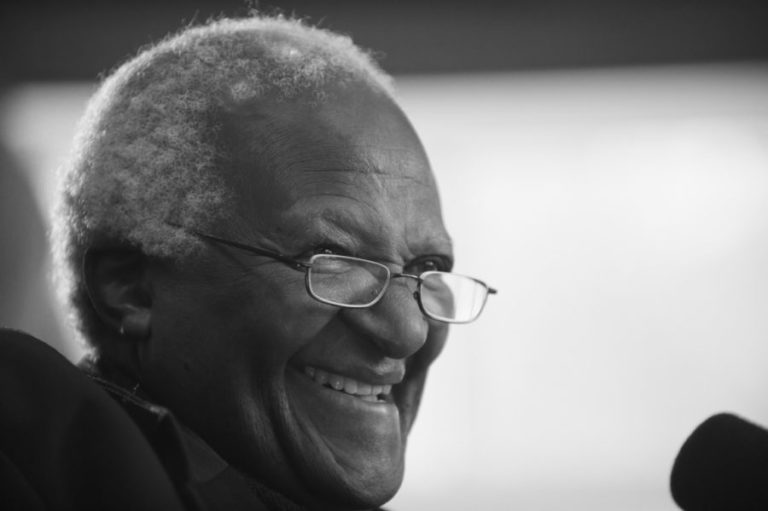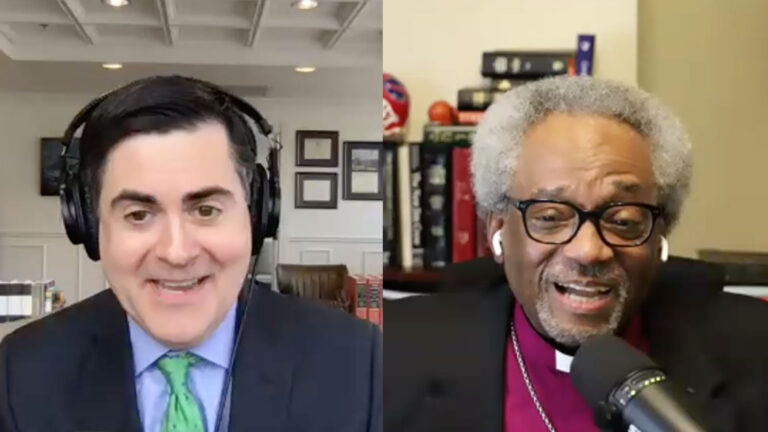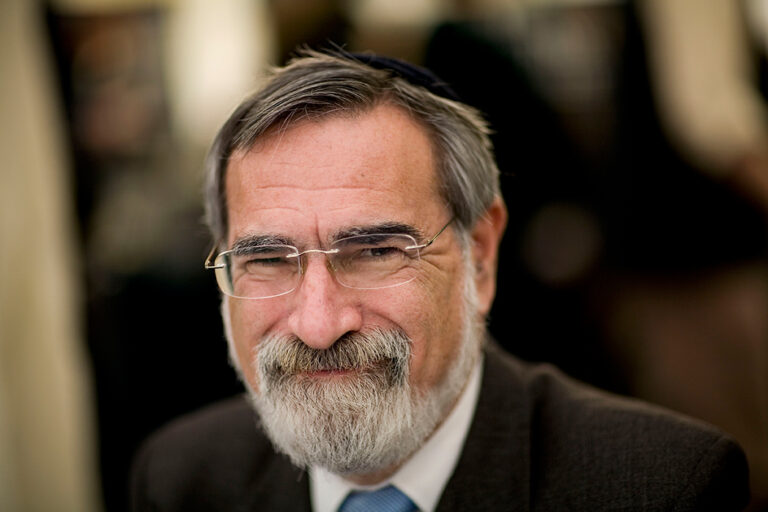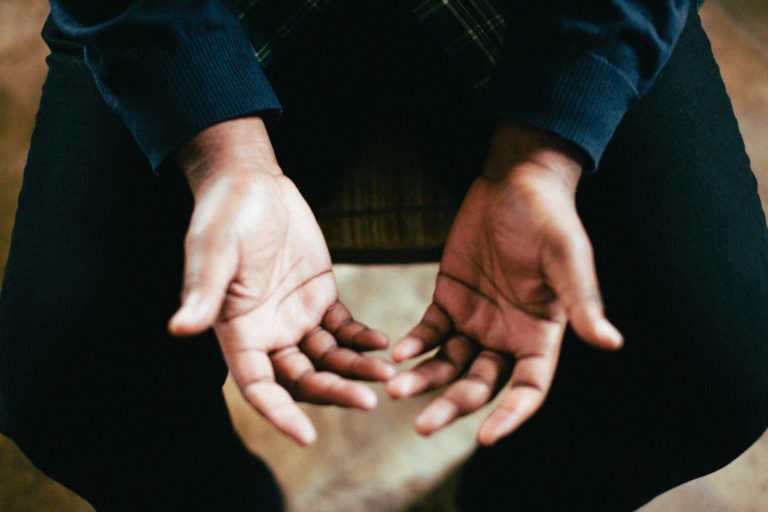September 25, 2014
His Holiness the 14th Dalai Lama of Tibet, Jonathan Sacks, Katharine Jefferts Schori, and Seyyed Hossein Nasr
Pursuing Happiness
The XIV Dalai Lama seems to many to embody happiness — happiness against the odds, a virtue that is acquired and practiced. Before a live audience in Atlanta, Georgia, Krista had a rare opportunity to mull over the meaning of happiness in contemporary life with him and three global spiritual leaders: a Muslim scholar, a chief rabbi, and a presiding bishop. An invigorating and unpredictable discussion exploring the themes of suffering, beauty, and the nature of the body.
